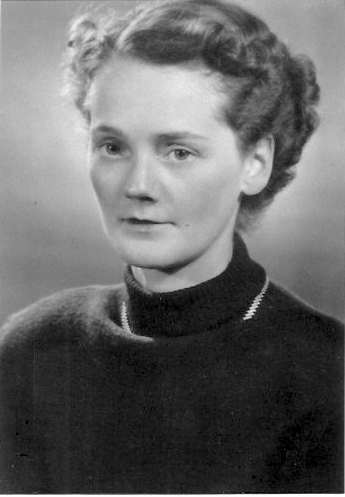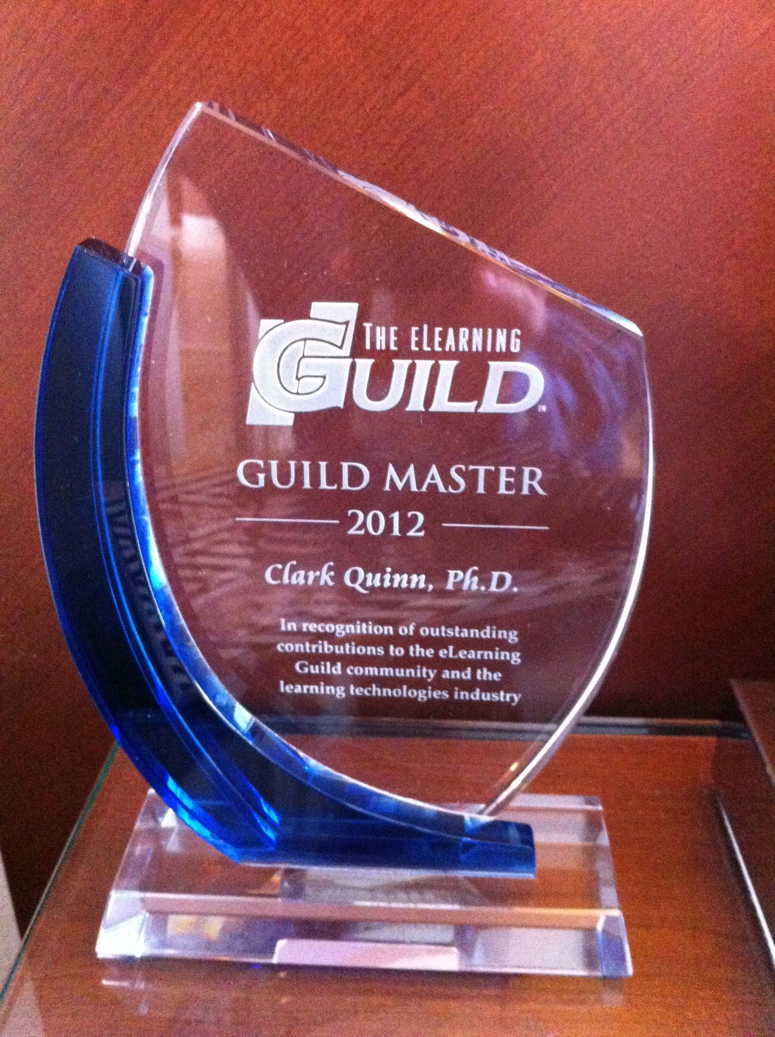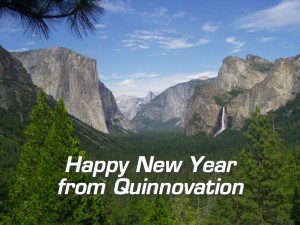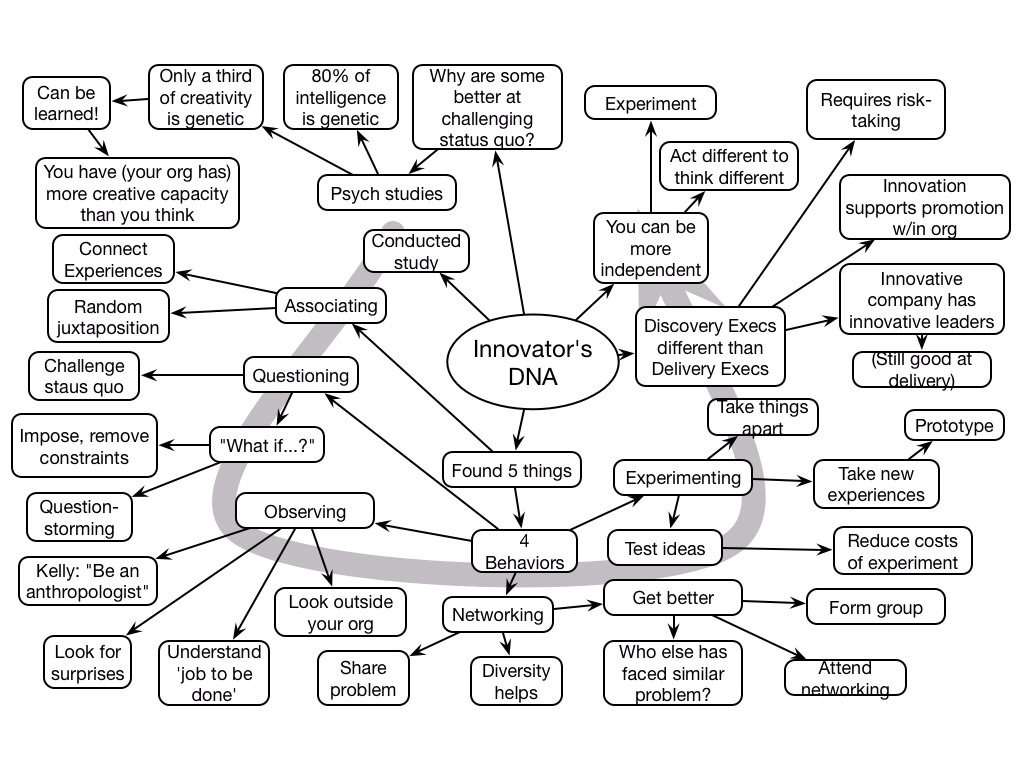Jeff Dyer presented an inspiring talk on innovation (a favorite topic :) at ASTD’s TechKnowledge conference, with great ideas buttressed by data. A nice kickoff to the conference.
Esther Quinn (1924-2013) RIP
 Early this morning, my mother died. She’d been wanting to go; having lost one leg to bad circulation and with continuing pain in the other for the same reason, her quality of life wasn’t great despite the loving care my brother and family provided. She needed help to get around, and hated to impose. She’d already outlived all her siblings, and fortunately her passing was relatively quick and painless.
Early this morning, my mother died. She’d been wanting to go; having lost one leg to bad circulation and with continuing pain in the other for the same reason, her quality of life wasn’t great despite the loving care my brother and family provided. She needed help to get around, and hated to impose. She’d already outlived all her siblings, and fortunately her passing was relatively quick and painless.
She had led a most interesting life; she grew up in Germany in a slightly privileged family (with a few servants), including during the time of World War II. The war was tough on the family; while one of her two twin brothers was lost to leukemia, the other lost his life as a fighter pilot. Her firm but loving father was briefly imprisoned for not being an ardent proponent of Hitler, but as a community official the local townspeople advocated for his release. Their house was bombed during the course of the war, but they had escaped to the countryside home of their family friends. I remember my mom telling me about heading with a friend to that region, and ducking under trees at times to avoid planes machine-gunning the field!
She was anorexic for a time, and so had to spend time in the hills of Czechoslovakia to recuperate, escaping some of the war. She also studied nursing in Switzerland, again avoiding some of the carnage, and felt remorse in both cases. She was also embarrassed about getting credit for not participating in a war-hawking May Day parade because the real reason wasn’t principled objection but instead that she didn’t want her birthday preempted. For the rest of her life she was always looking to help others. She was sympathetic to the disabled, as her father had lost his arm in the first world war, yet never let that slow him down.
After the war, she headed to the New York to stay with her aunt, and worked taking care of an elderly lady. She grew tired of being cold, and headed west by bus. She almost stopped in New Mexico, but ended up continuing on to Los Angeles, where she worked in a hospital, and ended up meeting my father, Nives. She never regretted leaving her native land and family, though she did miss them.
My folks got married, and she subsequently became a mother to me and then my brother Clif. With no proximal family of hers, she had to become quite independent, also as my father worked long hours. She kept us well fed, becoming a good cook and a strong advocate of natural foods long before such became popular. A good education was also a priority, and she took us to museums regularly as well as advocating for summer school and other activities. Frugal too (and occasionally penny-wise and pound-foolish, as she’d laughingly admit), our regular vacations were camping except for the occasional trips to Germany to visit her family. And she was capable: she knitted us sweaters, sewed, gardened, and had a ‘can do’ attitude.
She eventually went back to nursing when we were old enough, and was a revered fixture in the local emergency room for many years (though we had to restrain her from telling injury tales at the dinner table). She and my father remained active in politics and social efforts; after retirement they did considerable traveling but also volunteered time when home. She was always heading off to go shopping for the abused women’s shelter or to deliver something for somebody in need. She also was continually restless, courtesy of an overactive thyroid gland, and it was a family joke that she’d say she was finally going to sit and watch a movie, but soon she’d be up making snacks or doing some other thing around the house.
The thing that I grew to recognize and appreciate was how much my mother was a people person. Our house regularly had visitors, often from far away. My mom had the gift of really listening – she loved hearing others’ stories about life – and the next time she met you she would remember and ask. And help if she could. As a consequence, my folks always had invitations to visit, and people they met on their travels were always stopping through on their way elsewhere.
She never thought she was smart or wise, and yet she was both. She cared and her varied experience and endless curiosity meant she often had something useful to say. Her brain remained strong long after her body began to fail her. Despite the travails of infirmities, she continued with good cheer.
She was gentle, kind, thoughtful, and good, and we were very very lucky to have her. Rest in Peace.
Vale David Jonassen
David Jonassen passed away on Sunday. He had not only a big impact on the field of computers for learning, but also on learning itself. And he was a truly nice person.
I had early on been a fan of his work, his writing on computers as cognitive tools was insightful. He resisted the notion of teaching computing, and instead saw computers as mind tools, enablers of thinking. He was widely and rightly regarded as an influential innovator for this work.
I also regularly lauded his work on problem-solving. The one notion that really resonated was that the problems we give to kids in schools (and too often to adults in training) bear little resemblance to the problems they’ll face outside. He did deep work on problem-solving that more should pay attention to. He demonstrated that you could get almost as good a performance on standard tests using meaningful problems, and you got much better results on problem-solving skills (21st century skills) as well. I continue to apply his principles in my learning design strategies.
I had the opportunity to meet him face to face at a conference on learning in organizations. While I was rapt in his presentation, somehow it didn’t work for the audience as a whole, a shame. Still, I had the opportunity to finally talk to him, and it was a real pleasure. He was humble, thoughtful, and really willing to engage. I subsequently shared a stage with him when he presented virtually to a conference I was at live, and was thrilled to have him mention he was using my game design book in one of his classes.
He contributed greatly to my understanding, and to the field as a whole. He will be missed.
Honored
At the recent DevLearn conference, David and Heidi (the two-cofounders of the eLearning Guild) punk’d me. Under the pretense of having me assist the keynote speaker, they had me sit at the front of the stage with another purpose in mind.
As background, the Guild is explicitly labeled and designed to reflect the original concept of an association of craftsmen in a particular trade. The notion is that elearning professionals will be members of the guild to stay abreast of new developments, and interact with their peers. Inherent in this is the notion of participants starting as apprentices and moving gradually to the center of a community of practice. Consequently, the Guild hosts a number of things: online conferences (forums), Learning Solutions (an online magazine), research reports, discussion forums on LinkedIn, and of course their excellent conferences.

Heidi and David decided, apparently, that they wanted to reward those who were contributing, who were serving as defacto ‘masters’ of the community, following the historic traditions. Consequently, they were reviewing who did what, who was writing, researching, and presenting, and apparently one name kept appearing at the top of the lists. Mine.
Now, you have to understand that I have made no effort to see who was doing what; I see certain names regularly appear on their speaker lists, as well as new ones. I know a number of people have been involved in research, and they’re always getting new authors for the magazine. But I literally had no idea how much I did compared to others, so this was a complete surprise.
So they called me up on stage and bestowed upon me the honor of being the very first Guild Master, handed me this great chunk of gorgeous glass, all with me somewhat stunned and embarassed. They have stated an intention to honor others at following conferences, which will be great. I like how they view their role, think it’s valuable, and they strike the right balance in making a viable business that serves a community. They continually experiment as well, and that’s a good thing.
Needless to say, I’m truly honored that they noticed and deemed me worthy. It’s not always you get recognized for doing what you love, and when you do it’s humbling. I’m very grateful to them, and the kind comments others have made subsequently. And thanks to you for the feedback you’ve provided on my thoughts via this blog, helping me develop my understanding so I am better equipped for what I do. I am passionate about helping people perform better through technology, and as I often joke “this is what I would be doing even if I were independently wealthy (and you’re welcome to make that happen :)”.
I am truly pleased if what I’ve contributed has helped, and can only hope that I can continue.
Living on the road
I’ve spent a few days on the road the past few weeks, and thought I’d share my reflections on trying to survive sensibly and healthily. Kinda out of the normal line, but FWIW:
1) if you stay in a hotel that’s crazy enough to provide dinner, but also has kitchens, use the kitchens. Tried the fried rice yesterday and it was too salty. The overly sauced sesame chicken looked like it had death levels of sugar. And the fried egg rolls? Fat levels better left unmentioned. Glad I picked up food at TJ’s. Even if I have to wash the dishes (soap bars seem to work ;), it’s better than this food for a week. Today was better, the veggies looked ok, but the garlic bread looked suss and bet the chicken parmiagano was way too salty too.
2) same lesson for breakfast. The sausage and cheesy potatoes were ok yesterday, but glad I found the oatmeal today. I love biscuits and gravy, but they’d be the death of me if I ate the buffet bins everyday. Hard enough to eat well on the road.
3) increasingly, I’m finding tasty meal-scope salads when you inevitably eat out that I can really fill up on and feel good about eating: yesterday, asked for grilled chicken instead of fried on my southwest salad, today got the peanut sauce on the side for the oriental salad. Increasingly avoiding carbs, going for veggies and bits of meat.
As you get older, are on the road a fair bit, and still want to enjoy life, you need to find ways to eat more healthy when out and about. The good news is, it’s increasingly doable, but it also means some diligence. It’s hard to rein in my enthusiasm for food, but the realities of the slowing metabolism (I hate that) despite exercise mean I’ve got to find ways…
Love hearing your strategies!
Every once in a while…
..you get things right. Today, courtesy of Don Taylor, I got to sit at a dinner table with Roger Schank, Cathy Moore, Nigel Paine, David Mallon, and Steve Wheeler. The conversation segued between cutural wine etiquette, ethnic heat tolerances, and culture literacy, among other things. Thanks again to Don, and hoping I wake in time (jet lag is no fun)!
Happy New Year
 I have much to be grateful for at the start of this new year. I have had quite simply fabulous opportunities to engage, learn, and contribute. For that, I thank you.
I have much to be grateful for at the start of this new year. I have had quite simply fabulous opportunities to engage, learn, and contribute. For that, I thank you.
I am always working to discover new ways to contribute, both alone as Quinnovation in learning experience design strategy, and with my colleagues in the Internet Time Alliance in helping organizations work smarter. I’m fortunate that a second book is due to be published on the 2nd of February, this time on mobile learning, to complement my first book on learning game design.
My latest thoughts are captured here, and I invite you to subscribe via RSS or email if you don’t already. It’s my alternative to a weekly ezine.
Fervent wishes for the coming year, hoping it is your best yet.
Higher^2 Education
I have just been at my first WCET conference, which is focused on higher ed distance eLearning. Mostly, it’s focused on those in the trenches, that is those who are charged with making it happen. This is not a bad thing, as these are good folks trying to do good work. What is missing, however, is a way to address the next level, and the one above that, in a systematic and effective way. And, yet, we must.
Let’s start with President Obama’s recent call to raise the level of US higher education. And, frankly, there are more countries that need to heed the call of reforming post-secondary education. I’ve talked before about the needed changes in higher ed, but even the short term changes are hard to see happening.
There were some inspiring talks, including Mark Milliron of the Gates Foundation, and a ‘debate’ between Peter Smith of Kaplan (and author of a new book on the topic of higher education) and David Longanecker of WICHE (WCET’s ‘parent’). What became clear to me is that the goal of seriously raising the number of higher education graduates – whether associate, baccalaureate, or higher degrees – isn’t going to happen through incremental change. The problem is multi-faceted: the degrees available increasingly have little appeal, the pedagogies aren’t aligned to success, and the approaches don’t scale.
While the for-profit schools are providing competition to drive more market-focused courses, the time taken to get a program approved, and an institution accredited, provide barriers to being truly market-driven. That is of course, not the only goal, but things are moving faster than programs can be expected to cope.
I have to admit that I was also somewhat dismayed by a lack of pedagogical focus that mirrors the problems we see in corporate settings. There seemed to be little leeway to challenge faculty members to raise quality levels of learning experience beyond just the traditional content model.
Finally, the resources dispersed across institutions are not well-aligned with a goal of pervasive quality that can be replicated across the curriculum. Most institutions, even the big for-profits, seem to have approaches aligned for efficiency at the sake of effectiveness.
I admit big change is hard, but the stated goals are big, the need is big, and the opportunities are likewise. It would take a massive infusion of resources, however, to make a big change within the system. Which led me, naturally, to think of a big change outside the system.
I started thinking about curricula as a separate thing from the learning activities (content and more), from the products of learning generated, and from the mentoring. In particular, the varied mentoring that would go into vetting the curricula, the choice of learning activities, and the feedback on the products. The quick question is whether these could be disentangled from the academy.
Could we, in fact, either crowd source curricula or support self-definition and approval? Could the choice of resources and activities be scrutinized separately, both for quality and as an opportunity for lessons in becoming a self-capable learner in a discipline? Even system-selected? And could the feedback on products come from an appropriate suite of stakeholders?
That’s a relatively radical proposition, I recognize, but when you need transformative outcomes, you may need transformative approaches…
More prosaically, I remain dismayed by the continuing lack of strategic thinking in higher education, particularly the public sector. Small elements, like recognizing that the overall quality of teaching impacts an institution’s reputation, that devolving responsibility to domains will undermine a unified effort, that a systemic consideration of learning technology provides efficiencies as well as opportunities for effectiveness, etc. remain as missed opportunities.
What’s missing from what I see is a unified quality approach. What if Steve Job’s took on higher education? My take is that we’d see something like:
• We will deliver a totally killer learning experience
• We will not only develop your knowledge and skills, but you as a learner and performer
• We will be a partner in your success
That, to me, is the value proposition that we can, and should, deliver. If we are not aligned with that, we are not really offering the services that an education provider should be shooting for. Or an organization, for that matter.
So, are you aiming high enough? The time is now.
A request for help
I regularly review what I offer and do, trying to ensure an alignment between what the market needs and what I can offer, as is incumbent upon a consultant. It’s all part of life in the age of perpetual beta. Now, I think I have a pretty good idea of what I can do, and what the market needs, but there is the potential for some ‘blind spots’.
Ordinarily, I make my best stab and move on, but after working with my ITA colleagues and refining my understanding of the value of crowd-sourcing, I recognize that my perceptions may not be aligned with market perceptions about what I do or what is needed. So, I’m putting out a request, and asking that you contribute. Obviously, I’m hoping that if you’ve been reading this blog and/or know me, you will have some feel for what I (can) offer.
I’m asking that whether through comments on this blog post, by twitter (@quinnovator), or email or phone, you provide input on any or all of the following questions for me (as Quinnovation):
- What services does and should Quinnovation (that is, me) offer?
- What is, or should be, Quinnovation’s unique market position or value proposition?
- What problems does or can Quinnovation solve as well or better than anyone?
- Who is or should be Quinnovation’s target market?
Yes, ultimately it’s my responsibility, but it’s worthwhile to get your input. Also, please feel free to be brutally honest; I’d rather have insight than inaccurate gentleness. I welcome your feedback. Thanks in advance, and eager to see what shows up!
Stop with the bad social media marketing!
What I’m now keeping as a note to paste in reply to these solicitations:
You clearly do NOT read my blog. If you had, you’d see that there’s been an ongoing flurry of attempts at getting me to pay attention to online degrees and either similar or the sister sites, and I blogged that it’s not what I do. Whether it’s a “can I write a guest post (pointing back to my degree biz site)”, or “don’t you want to blog about my blog post (at my degree biz site)”, it’s bad social marketing.
I blog about what I find personally interesting, and that’s usually something someone I’m following on twitter has retweeted, or something that’s come up in my work, or at a conference. Not what gets sent unsolicited.
If you don’t know me, don’t send me unsolicited email unless you have some value proposition a little bit more pertinent than “I have this blog associated with a business and if you give us attention it might result in more business for us, what you get I don’t know”.
Am I missing something? Otherwise, please take me off your list. Forever. Please.
Update: the same goes for any other learning ‘product’ that there’s a new free trial for, or a raffle, or any other such social media marketing.

